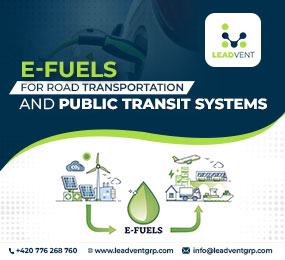Shaping the Future of Clean Mobility: Key Takeaways from the World e-Fuels Summit
As the push to decarbonize industries intensifies, energy experts, scientists, policymakers, and investors convened at the World e-Fuels Summit to address a critical question: how can we decarbonize sectors that are difficult to electrify?
The answer that repeatedly surfaced? e-fuels.
Why e-Fuels Are Gaining Attention
Synthetic fuels, or e-fuels, present a promising path forward. Created from renewable electricity, green hydrogen, and captured carbon dioxide, e-fuels can power current engines, ships, and aircraft without requiring major infrastructure overhauls. This is especially beneficial in industries like aviation and shipping, where full electrification remains a distant goal.
What stood out at this year’s summit is that the buzz around e-fuels is no longer just theoretical—progress is accelerating rapidly.
Innovation in Action
The summit was a showcase of rapid innovation, from next-gen production techniques to real-world demonstrations. Global leaders shared updates on operational pilot plants and insights from early commercial projects already producing e-kerosene, e-diesel, and e-methanol.
One key highlight was the focus on carbon capture—transforming CO? emissions into clean, usable fuel. The circularity of this process emerged as a critical breakthrough in climate strategy.
Regulation and Investment: The Path Forward
The summit also emphasized the regulatory and financial frameworks needed to accelerate e-fuels adoption. Government officials and regulators highlighted the importance of legislation in scaling synthetic fuels, particularly in Europe, where mandates for sustainable aviation fuel (SAF) and shipping are unlocking opportunities for e-fuels.
On the investment side, clean tech investors and venture capital firms are showing increasing confidence in e-fuels, recognizing their potential to integrate into existing systems while meeting future climate targets.
Collaboration: The Key to Progress
A central takeaway from the summit was the importance of collaboration. No single company or sector can drive the large-scale adoption of e-fuels alone. Achieving breakthroughs in efficiency, cost, and infrastructure will require partnerships between energy producers, heavy industries, transportation, technology startups, and governments.
The discussions were ambitious yet grounded, with optimism and urgency fueling the momentum throughout the event.
Final Thoughts
The World e-Fuels Summit wasn’t just a display of current achievements—it was a clear indicator of where we are headed. As attention shifts toward hard-to-decarbonize sectors, e-fuels are emerging as a viable solution to reduce emissions and keep the world moving forward.
This isn’t just an energy transition; it’s a reinvention of how we fuel the future in a way that ensures no one gets left behind.
Learn more on our website: https://www.leadventgrp.com/events/2nd-annual-world-e-fuels-summit/details
For more information and group participation, contact us: [email protected] .
Leadvent Group - Industry-Leading Events for Business Leaders!
www.leadventgrp.com | [email protected]
















